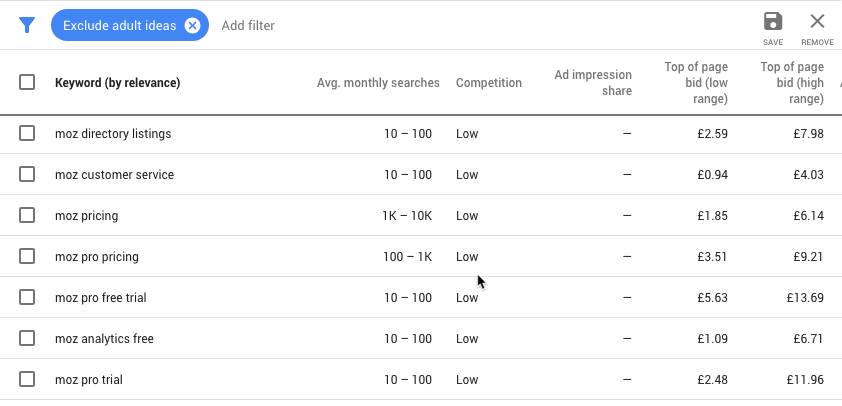Good keyword research is essential to any B2B account-based marketing strategy. However, too many business owners and managers treat keyword research as an afterthought or task that an intern or entry-level employee can handle. We understand you have a lot of other things to do, but without carefully selected keywords, you won’t hit your digital marketing goals. Your pay-per-click advertising will be targeting the wrong customers. Your web pages won’t show up in search results that potential customers are entering to find products and services such as yours. And, you won’t get the value and results you should for your digital advertising dollars. All of these factors are essential to implementing smart account-based marketing strategies for your business.
What You Need to Know About Keyword Research
How do you choose the keywords that will work well for your business and further your corporate goals? What about keywords that work with your current account-based marketing sales strategies? These are the basic steps:
Create a Keyword Strategy
The first step is to decide what you want to accomplish with your keywords. Do you want to draw new customers to your business? Are these local customers, or are you looking for customers from all over the country (or the world)? Do you want to focus on a single product or service, a particular line of products, or your entire business? Sit down with your team and decide what your goals are before you start looking at specific keywords.
Target the Right Audience

The audience is extremely important when looking at B2B keywords. If you’re selling a product or service to other businesses, you don’t want to waste your sales team’s time having to weed out individual consumers who mistakenly fill out your lead form. Ensure that the keywords you choose relate to businesses and aren’t likely to be used by individual consumers. For example, if you offer event planning for conventions and business meetings, you might use the keywords “business event planning” or “convention planning.” Simply using “event planning” will likely get you a bevy of brides-to-be, not corporate managers.
Invest in the Proper Tools
Having the proper tools is invaluable when it comes to keyword research. A good keyword finder is essential to help you brainstorm about what keywords you might want to use. Google Ads offers a free keyword finder. Other tools you’ll want to use include Google Analytics, which provides you with a wealth of raw data about your Google Ads and website activity, such as the pages per session, bounce rate, number of visitors to your site, and where those site visitors are coming from. In addition, Google Data Studio helps you convert your raw data into customizable reports.
Choose your Keywords
Having chosen your audience and set your goals, it’s time to do your research. Using your keyword finder, you can see what buyers are searching for with Google. You can also see what keywords your competition is using. Doing the research is important. Often, the words you think would draw customers to your product rank low with the keyword finder for your type of business.

Evaluate your Keywords and Make Adjustments
Few keyword campaigns work perfectly the first time you use them. Some may be attracting inquiries you don’t want, such as people look for jobs in your industry or looking for products you don’t offer. Others are low-performing. If you’re getting responses from people you aren’t targeting, look at your keywords again and see where they might be misinterpreted.
To use keywords effectively, you need to know at least the basics of search engine optimization. Keywords are used in your website, social media content, and advertising. In your content, they are the words that tell search engines, like Google, what your content is about. They need to be placed properly in your content so search engines know to look for them (H1, H2, meta tags, etc.) They also need to be words that your potential customers are entering in searches. A great article with well-placed keywords about an obscure topic will still not be of much use to you commercially since no one is likely to be searching for that topic.
In advertising, keywords are the words (and phrases) that determine the amount that is deducted from your Google Ads account each time someone clicks on one of your ads. They will also determine where your team will place those ads on the web and thus, who will see them.
You will also need to identify your negative keywords. These are keywords that you want to be excluded from your Google Ads results and ad placement. For example, if you are getting people looking for jobs in your field instead of the leads you expect, you might use “jobs” as a negative keyword. This will exclude any searches that include “jobs” from seeing your ads.
How to Track Results
Tracking the results of your keyword strategy originates with the goals for your content or your pay-per-click ads. Are you trying to sell more of a particular product? Looking for leads or people to sign up for a webinar or other event? Whatever your goal, have you increased activity? The activity would be getting a person to complete a lead form or sign up for an event. Whether the lead converts to a sale is up to your sales team. Your keyword is only responsible for getting the lead to the team.
If you are using Google Ads, the platform offers several excellent reports that can help you track activity based on individual keywords. You can see where your leads or sales are coming from, what time of day they clicked on your ad, and what pages they visited while on your website, among other information. Track your key performance indicators (KPIs) to see how your digital marketing campaigns perform with your new keywords. KPIs include your click-through rates, number of leads generated, online sales revenue, how long the average user stays on a particular page, total website traffic, and conversion rate. KPIs are any measurable value that’s actionable and furthers your online marketing goals.
Finding the time to do good keyword research can be a challenge with all of your other business obligations. However, with the right tools, good research skills, and a savvy digital marketing partner, your keywords can drive more leads, more conversions, and, ultimately, a healthier bottom line for your business.

